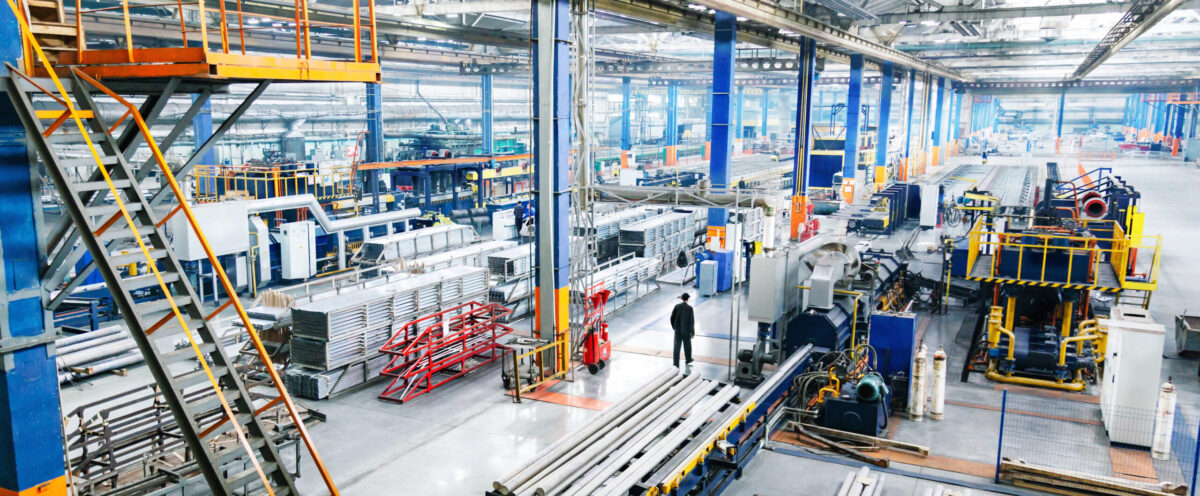
Adobe Stock image | SB 131, which took effect in June, exempts projects used exclusively for advanced manufacturing from CEQA requirements.
Written by Frank Lopez
New laws recently signed by Gov. Gavin Newsom are bringing broad reforms to the controversial California Environmental Quality Act (CEQA), which has been the ire of many in the business community for decades.
Passed in 1970 by then-California Gov. Ronald Regan, CEQA was meant to inform government decisionmakers and the public about the environmental impacts of proposed development projects.
In June, Newsom signed into law bills AB 130 and SB 131, taking effect immediately.
Both these bills create several new CEQA exemptions to help streamline the approval of various types of projects.
The new laws will exempt a variety of housing projects, including infill housing, farmworker housing, day care centers, as well as advanced manufacturing projects.
SB 131 exempts projects used exclusively for advanced manufacturing, including manufacturing facilities involving microelectronics, nanoelectronics, semiconductors, advanced materials, integrated computational materials engineering, nanotechnology, additive manufacturing and industrial biotechnology.
The manufacturing projects must be located on a project site zoned exclusively for industrial purposes and cannot be located on “natural and protected lands.”
On Thursday, Sept. 18, the Fresno Business Council, the San Joaquin Valley Manufacturing Alliance, and the American Institute of Architects will hold a workshop “Breaking Ground: Navigating Land Entitlement for Manufacturing Growth in Central” Valley, at the Tower Conference in Fresno from 9 a.m. to 11 a.m.
The workshop is designed for Central California manufacturers and businesses looking to expand their operation and navigate the land entitlement process, understand the recent CEQA changes, work effectively with city and county planning departments and avoid pitfalls that delay or derail development projects.
The workshop will have a panel discussion moderated by architect and partner at Associated Design & Engineering in Fresno Armen Devejian, with panelists Bonique Emerson, vice president of the planning division of Precision Engineering; Arielle Harris, partner at Cox, Castle & Nicholson of San Francisco; Lance Kashian Company President Sal Gonzales and City of Fresno Planning Manager Phillip Siegrist.
Devejian said his office had been receiving lots of question about the pathways for land entitlement and development for manufacturing facilities in Fresno and the Central Valley and what obstacles they may potentially encounter.
“I think it is going to be very beneficial to any manufacturer or business who is looking to grow, expand or build a new facility in the Valley,” Devejian said.
Devejian said some of the CEQA requirements cover things many people might not think about when looking to develop a project, including the effects on traffic flow, vehicle miles travelled, proximity to a school or a shopping center and what Native American tribes need to be notified.
He said that being informed about CEQA makes land development much less scary and takes away “the black hole of worry and concern.”
Devejian said that the changes to CEQA will be easier to work with in some ways, but also might be more restrictive in other ways. Having the right people to help along the process will provide the knowledge needed to plan for a project, he said.
He noted that there is a lot of room in Southwest Fresno for growth, and not for manufacturing alone, but also for commercial development that could provide the quality of life amenities to the Southwest area that people in north Fresno or Clovis enjoy.
California is unique, Devejian said, with the state being among the most if not the most challenging place to develop manufacturing and industrial facilities. Other states have fewer requirements where the land entitlement process lasts months instead of years like in California.
“It’s more challenging in California, but California is the best place to do it,” Devejian said. “I would not trade any of the regulations and the benefits we get from CEQA to live in a state that doesn’t have these protections for citizens.”
Regardless of the changes that come from Washington, D.C., including issues like tariffs and immigration, California can stand on its own, he said.








